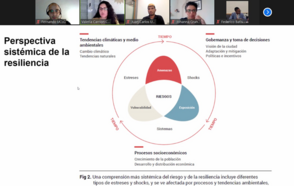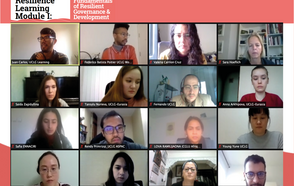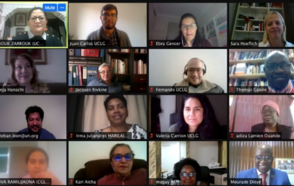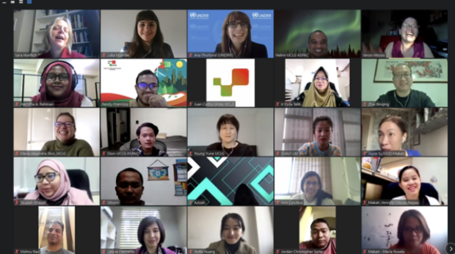
The roll-out of the Resilience Learning Module continues with three-day training co-facilitated by UCLG-ASPAC and UCLG’s Learning team between March 9-11 counting with the participation of 25 representatives from eight Asia-Pacific local governments and five national LRG associations.
The Asia-Pacific region is the most exposed to natural hazards in the world, and cities and local governments in the region have valuable experiences in recovery and response that the world can learn from. Shifting to more resilient development patterns however remains a challenge, one towards which this training aimed to contribute to. As indicated by Dr Bernadia Irawati, UCLG ASPAC Secretary General, in the training’s opening, “plans without actions are meaningless” and local governments need to move further towards implementation, empowering and sharing learnings with their home-city counterparts.
In the first day of the training, participants were invited to share about themselves, and then engaged in a lecture on risk and resilience, looking at shocks, stressors, hazards and vulnerabilities. Participants were soon applying this new knowledge in group activities, and then diving more in-depth into linkages between the SDGs, resilience building and the Sendai Framework for Disaster Risk Reduction.
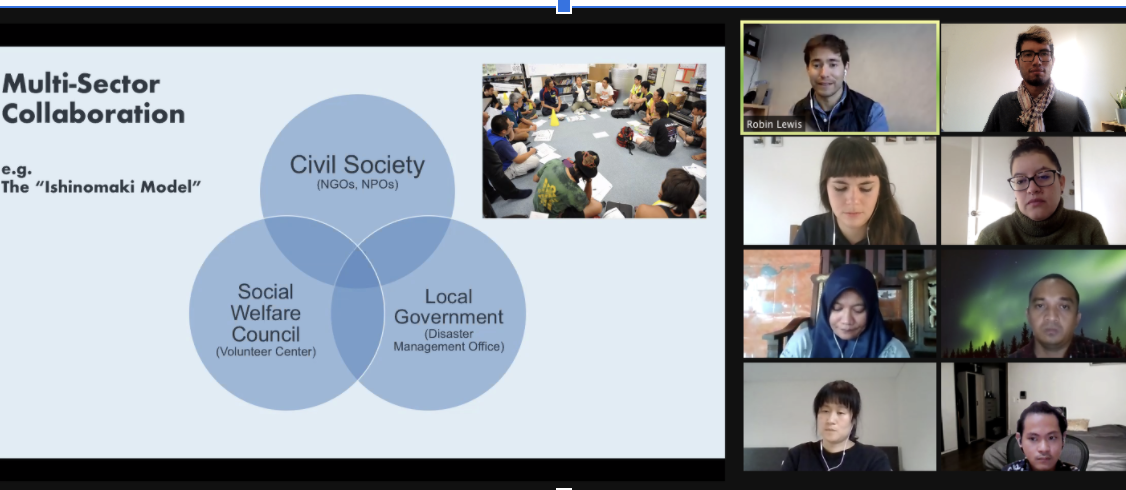 The second day explored resilience principles, policy cycles, and assessment tools, followed by a collaborative simulation game. While role-playing key local government actors such as the mayor, finance or health secretariat, participants were tasked with deciding which actions to take following proposed scenarios - with considerations for the environmental, economic and social needs and trends. Veron Hitosis, League of Cities of the Philippines’ programme manager, reflected that the exercise highlighted the importance of financial and environmental data to enable governments to make strategic decisions. The rest of the day focused on strategies and financing mechanisms to address resilience challenges, with UNDRR’s Sanjaya Bhathia highlighting exemplary city case studies.
The second day explored resilience principles, policy cycles, and assessment tools, followed by a collaborative simulation game. While role-playing key local government actors such as the mayor, finance or health secretariat, participants were tasked with deciding which actions to take following proposed scenarios - with considerations for the environmental, economic and social needs and trends. Veron Hitosis, League of Cities of the Philippines’ programme manager, reflected that the exercise highlighted the importance of financial and environmental data to enable governments to make strategic decisions. The rest of the day focused on strategies and financing mechanisms to address resilience challenges, with UNDRR’s Sanjaya Bhathia highlighting exemplary city case studies.
As 11 March marked the ten year commemoration of the Great East Japan Earthquake and Tsunami, the third and final day of the training had a sense of gravitas - a reminder of the importance of localising the Sendai Framework adopted following this complex triple disaster. Robin Lewis, co-founder of Social Innovation Japan, shared his volunteer experiences during the crisis, emphasising that, “at the end of the day, a lot comes down to social ties, which highlights the importance of community-based resilience strategies”. UCLG Learning Director, Sara Hoeflich reflected on the international solidarity she witnessed in the wake of the Aceh tsunami in a dynamic that invited participants to reflect on the role, needs and functioning of local governments following a disaster or crisis.
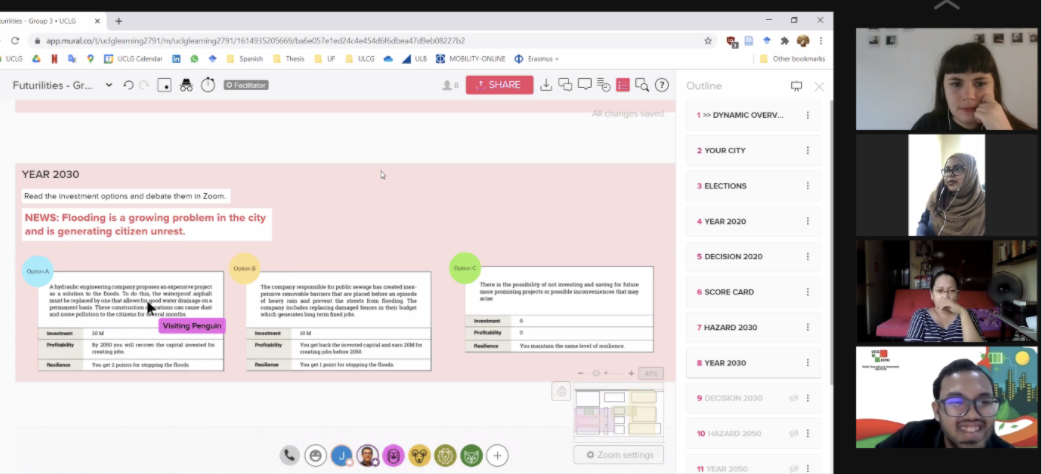 The final day also helped to consolidate the knowledge learnt, and share more about the participants’ own cities. The cities of Kuala Lumpur, Xi’an, Surakarta and Makati shared their current resilience strategies, emphasizing governance mechanisms, coordination among different stakeholders and the financing tools they each use. UCLG ASPAC’s Helmi Abidin closed the day, inviting participants to explore more collaborations between cities and LGAs and encouraging participants to share the lessons learnt broadly with the UCLG-ASPAC community.
The final day also helped to consolidate the knowledge learnt, and share more about the participants’ own cities. The cities of Kuala Lumpur, Xi’an, Surakarta and Makati shared their current resilience strategies, emphasizing governance mechanisms, coordination among different stakeholders and the financing tools they each use. UCLG ASPAC’s Helmi Abidin closed the day, inviting participants to explore more collaborations between cities and LGAs and encouraging participants to share the lessons learnt broadly with the UCLG-ASPAC community.
The workshop showed the effectiveness of the module’s training of trainers’ approach to reach many cities and foster learning through the adaptation and contextualization of its contents and exercises by previously trained facilitators in the different sections and associations of the UCLG network, while building on the partnership with the UN Office for Disaster Risk Reduction (UNDRR) and UN-Habitat. Despite the format being online, the participants showed a lot of knowledge and interest to train and follow up in the networking around resilience. We welcome our new trainers in Asia!!











